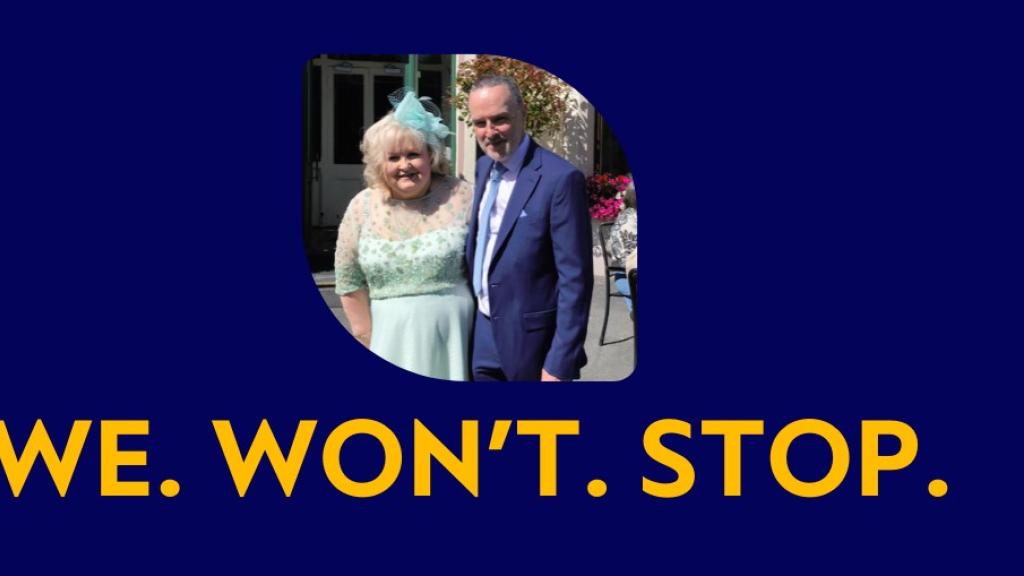
“It’s so important to communicate with your spouse, your immediate family, people you trust."
Phelim Warren had celebrated his 57th birthday six days earlier when he was diagnosed with prostate cancer in September 2023. The news came as a complete shock to Phelim and his wife, Louise. “I was so surprised because I felt so well,” he says. Phelim had no symptoms before his diagnosis, but he had been vigilant about getting his blood tests done yearly. When went for his annual blood check in March 2023, his PSA was 8, and the normal level for men aged 60 is within the range of 2.5-3.5. He was referred for an MRI scan which showed a suspicious lesion near his prostate area. The next step was a biopsy, and Phelim was frustrated that the wait time for this was originally meant to be weeks, but this extended to a four-month delay before the biopsy happened.
“A mate of mine had a similar lesion on his prostate and the biopsy came back clear. So, I was convinced that this was something else that they can take care of. I'm not the person who pre-empts things. I just said, I feel well at t the moment; I don't have cancer. If they tell me I have cancer, I'll deal with that, but I was convinced I didn't have it,” he says.
He was called for a biopsy on August 17 and on September 23 he was told that he a Gleason Score 9, high grade prostate cancer. Phelim was referred for a PET scan, and two weeks later, he received the results. His oncologist told him that the cancer had spread from the prostate into the lymph nodes in his pelvic area. The cancer was also inoperable, and surgery was not an option in his case. The way forward for Phelim was treatments.
“People who I'd spoken to who had issues with prostates, usually in most cases, it seemed to me that an operation did the trick. They took out the prostate gland and recovered, and that was the end of it,” he says. “The ward ‘inoperable’ was stark enough and looking at the computer screen with Louise and the professor, pointing out all those cancerous spots, I was completely floored me. I really didn't see that coming. Having digested everything, it was when I made the phone call to my sister about an hour later that the enormity of it all just overcame me like a hurricane, and I bawled my head off.”
Phelim’s treatment plan began with a quarterly injection, followed by hormone tablets which he will continue for two to three years. He also received 39 rounds of radiotherapy, which he completed in January 2024.
“The tablet can have quite severe side effects and cause issues with liver, heart and blood pressure but thankfully that didn’t happen to me,” he says. “I must be mindful of my energy levels and if I overdo things physically, I will feel it that evening or the next day. But other than that, I feel as well as ever.” He continues to have his bloods checked monthly.
When he shared his story on social media and on his blog, he was overwhelmed by the messages of support he received. “People were incredible, and I know that at least 15-20 people have said to me that because of reading about my situation, they took it upon themselves to have their bloods done. In more than a few cases, they discovered that they did have issues so sharing my story, and advising people to get their bloods done has been very effective in that regard.”
He has found it helpful speaking to others who have a cancer diagnosis and is also trying to maintain a positive mental attitude. “Your positive mental attitude is key in this and I’m a firm believer in that,” he says.
His recommendation to anyone facing a similar diagnosis is: “Listen to the medical people, for a start, and bring somebody with you. When you hear that news, your mind starts racing and it can be difficult to take everything in so it’s important to have someone else there in case anything gets missed or misunderstood.”
Phelim also advises not researching your condition online. “Do not Google anything. I can't stress that enough,” he says. “I Googled who my oncologist was, but I didn’t Google anything like treatment side effects or life expectancy. I think you’re going down a very dangerous hole there.”
From his experience, talking about cancer has helped him a lot. “You can't internalise it. Not that I ever called it an illness because I’ve never felt ill; I always refer to it as my diagnosis because that helped me mentally. It’s so important to communicate with your spouse, your immediate family, people you trust. You have to talk to people.”
